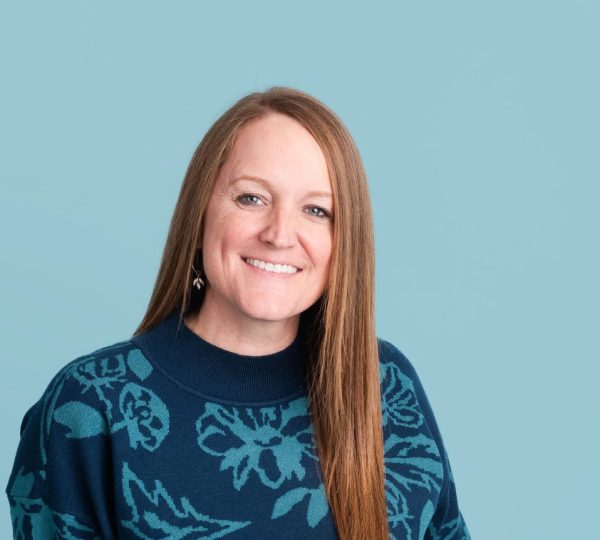
In today’s hyper-focused work environment, have you ever encountered moments where the pressures of life easily bog you down? Have you ever fixated on your flaws and what you did wrong over the week to a point where it almost becomes second-nature? Has your positivity, once central to your being, become drowned out by self-doubt, insecurity and perceived imperfections? If this sounds familiar, do not worry—Jaime “JJ” Weisberg is here to offer solutions. As a coach, consultant, trainer, speaker, positive psychologist and “human potentialist,” Weisberg has accumulated experience over her career essential to tackle this personal obstacle. Based in Syracuse, she is the founder of Northbound Coaching and Consulting, a company rooted in positive psychology. Her work focuses on breaking through mental barriers and rewiring habits in order to create lasting change for her clients.
On Tuesday, Sept. 16, Hamilton College students, faculty and staff had the chance to attend Weisberg’s first event on the Hill, titled “What’s Right with You?”. If that title raised your brow and piqued your interest, you are not alone. Focusing on your weakness is an instinct hard-wired within our evolutionary DNA. “We humans possess an innate negativity bias, given that our past existence in outdoor settings required us taking into account the dangers of our environment. Being attuned kept us alive, survival was central, while happiness was not,” Weisberg explained. Yet, in today’s world, the challenges homo sapiens once faced are no longer a threat. “Even though the ‘bad’ is getting more attention today, it isn’t essential or necessary. I came into the workshop with the idea to shift and strengthen the paradigm,” says Weisberg.
At the core of Weisberg’s philosophy is ‘positive psychology.’ As a field of psychology, positive psychology is lesser known than behavioral or clinical psychology due to its recent rise in the 1990s. Psychologists realized that they were very good at diagnosing and treating human flaws, but not reinforcing positive attributes. This came to be a problem given that “when treating an illness, like depression, once people got out, they were cured but not happy. An extra step was missing. Teaching skills like resilience were needed for individuals not to drop below neutral levels, or slide back into negative states,” Weisberg argues. She uses the mantra “from surviving to thriving” as means for explaining this philosophy. Settling for an average life is no way to live: “Imagine if we obsessed about the things we love about ourselves? Wouldn’t that be great? Well, it is possible,” says Weisberg.
Prior to the event, participants were asked to complete a Values in Action Inventory of Strengths (VIA) survey. The quiz contained 96 questions aimed at ranking one’s character strengths. Based on psychologists Chris Petersen and Martin Seligman’s book “Character Strengths and Virtues,” the 24 most important character traits include leadership, creativity, judgement, social intelligence, humor, zest and love of learning, among others. Once completed, survey results rank character strengths from one to 24. Weisberg highlighted the importance of perspective when analyzing one’s own results: “Lower-ranked strengths are not a weakness, they are simply lesser strengths. Some are more prevalent than others, but don’t frame it negatively.” Participants were then asked to take their top five strengths and compare them with the rest of participants; humor, honesty and love of learning stood out as most dominant. On a human scale, Weisberg conclusions have shown that kindness, fairness, honesty, gratitude and judgement are most prevalent across all previous participants. The last part of the group activity allowed participants to express ways in which their strengths shine on a daily basis. One participant, a softball coach at Hamilton, expressed how her ‘teamwork’ strength shows up when drafting a new collaborative strength and conditioning program with other athletic coaches on campus. Another participant spoke about how life responsibilities—namely work and his children—did not allow him to tap into his childhood love for motorcycles as much as he would like. Now retired, he plans on using his ‘zest’ strength to embrace that hobby with open arms.
The concluding segment of Weisberg’s talk focused on real-world applications. She offered multiple suggestions. First, “embrace a language that is ‘I am funny, I am zest, I am open to new ideas and curious about differences.” Second, “in other people, name the strength, claim it, and leverage it. It always feels nice for the other person when you can realize and recognize their strengths. The more you have a language for this, the more you can apply it. For instance, ‘I love it when you let others voice their opinions at meetings,’ or ‘I appreciate you taking the time to reach out and check in with me.’”
Finally, Weisberg recommends a seven-day commitment to calling out a strength in yourself and others. “See who you meet, and what you forgot you loved about yourself back in the day. You will start to notice these strengths occur naturally over time.”
What are you waiting for to embrace, own and understand your character strengths? Doing so will undoubtedly lead to a more meaningful life, an ability to better handle stressors and foster greater long-standing happiness. Your strengths should be effortless, essential and energizing. Don’t be afraid or ashamed to acknowledge them. Weisberg sums it best: “I hope you continue to obsess over what’s right about yourselves!”
























